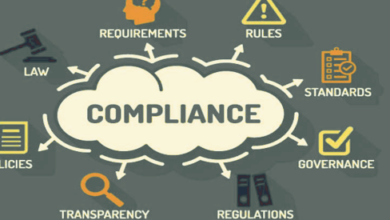
5 Different Types of Services to Improve Mental Health
Mental health is an essential part of our overall well-being, yet it is often overlooked. We all go through tough times, whether it’s stress, sadness, or anxiety. Luckily, there are many services available to help improve our mental health.
These services aim to provide support, guidance, and treatment for those in need. In this post, I’ll talk about five different types of services that can help improve mental health and lead to a healthier, happier life.
1. Counseling Services
One of the most common ways to improve mental health is through counseling. This type of service provides a safe and confidential space to talk about your feelings, thoughts, and struggles. Counselors are trained professionals who can offer advice and help you work through your problems.
Counseling can be particularly useful for dealing with stress, anxiety, or relationship issues. Whether it’s individual therapy or group counseling, this service helps people develop coping skills, manage emotions, and improve their overall mental well-being.
See also: William Hornbuckle Net Worth: MGM Resorts CEO’s Wealth
2. Depression Counseling
Depression counseling is a specific type of therapy aimed at helping those who are struggling with depression. Depression can make people feel sad, hopeless, or disconnected from the world. It can affect one’s ability to enjoy everyday life.
Professional depression counseling provides the support needed to manage these feelings. Through therapy, a counselor helps patients understand the causes of their depression, build coping strategies, and set realistic goals for recovery.
3. Substance Therapy
Substance therapy focuses on treating addiction to drugs or alcohol. People struggling with substance abuse often find it hard to control their cravings, which can negatively impact their mental health. The substance therapy combines counseling, treatment programs, and support groups to help individuals break free from addiction.
These services focus on both the psychological and physical aspects of addiction. They aim to help people find healthier coping mechanisms, and rebuild their lives in a positive way.
4. Support Groups
Support groups are another valuable resource for improving mental health. These groups bring together people with similar experiences, such as those dealing with grief, anxiety, or eating disorders. Being part of a support group allows individuals to share their struggles in a safe, non-judgmental environment.
Group members offer encouragement, advice, and understanding, which can be comforting. This service is particularly beneficial because it shows that no one is alone in their mental health journey, and it helps reduce feelings of isolation.
5. Online Therapy and Mental Health Apps
With the rise of technology, online therapy has become an increasingly popular way to access mental health support. Many people find it more convenient to connect with a therapist through video calls or messages instead of attending in-person appointments.
There are various mental health apps to help individuals track their moods, practice mindfulness, or access therapy sessions. These digital tools offer flexible options for those who might not have access to traditional therapy or prefer the convenience of remote support.
Conclusion
Mental health is crucial, and it’s important to seek the right services when we need support. Whether it’s through counseling, substance therapy, or support groups, there are many ways to improve mental health. The goal is to find a service that works best for you and your specific needs.
Remember, it’s okay to ask for help, and taking steps toward improving your mental health can lead to a happier, more fulfilling life.




